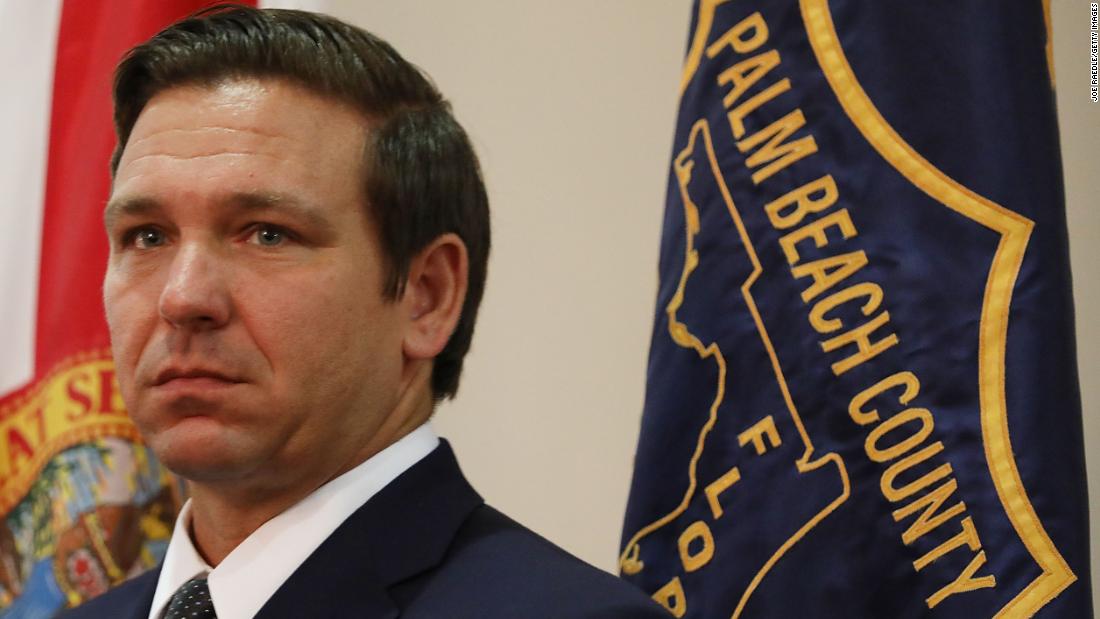
The lawsuit was filed in the Northern District of Florida on behalf of 10 people who lost their right to vote through felony convictions. It names 11 elections officials as defendants.
Critics have said that having to pay fines, fees or restitution amounts to a poll tax. Florida Gov. Ron DeSantis, a Republican, has said the "idea that paying restitution to someone is equivalent to a tax is totally wrong."
"The only reason you're paying restitution is because you were convicted of a felony," DeSantis said in May.
The lawsuit says the new law, which sets conditions on an amendment passed by voters last year, will have a disenfranchising effect and creates two classes of citizens: those who have the money and those who don't.
"This disenfranchisement will be borne disproportionately by low-income individuals and racial minorities, due to longstanding and well-documented racial gaps in poverty and employment," the suit says.
The lawsuit also includes as plaintiffs the Florida state conference of the NAACP, the Orange County office of the NAACP and the League of Women Voters of Florida.
"Over a million Floridians were supposed to reclaim their place in the democratic process, but some politicians clearly feel threatened by greater voter participation," said Julie Ebenstein, senior staff attorney with the ACLU's Voting Rights Project. "They cannot legally affix a price tag to someone's right to vote."
In May the Florida House passed the bill on a party-line vote on the last day of the legislative session.
The law allows the financial obligations to be converted to community service or for a victim or court to forgive restitution.
In November, Florida voters approved Amendment 4, allowing felons who complete all terms of their sentences, including parole or probation, the right to vote, except those convicted of murder or a felony sexual offense.
Amendment 4 passed with nearly 65% of the vote, exceeding the 60% threshold required to become a law and restoring voting rights to about 1.4 million Floridians.
The addition of so many new voters could have an impact in a state whose elections are often decided by slim margins. An analysis conducted last fall by the Tampa Bay Times and Miami Herald found Democratic and black voters were far more likely to have lost their voting rights because of felony convictions.
The fees and fines that felons are ordered to pay are wide-ranging but significantly high for individuals leaving prison, especially if they're unemployed.
They can range from a couple of hundred to tens of thousands of dollars, said Lisa Foster, the co-director of the Fines and Fees Justice Center, a group that aims to eliminate fees in the US justice system.
In Florida, all the court charges that are unpaid after 90 days are referred to private debt collectors, who are allowed to add up to a 40% surcharge on the unpaid court debt, according to Brennan Center for Justice, a division of New York University School of Law that studies democracy and justice issues and helped draft Amendment 4.
Bagikan Berita Ini














0 Response to "Felons in Florida sue state officials over payments required to regain voting rights"
Post a Comment